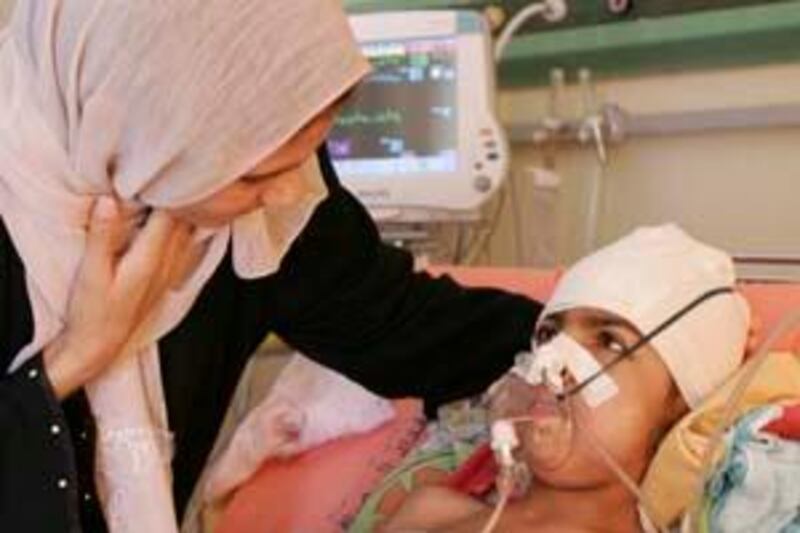A suicide bomber blew himself up today killing at least 33 people, including tribal leaders and army officers, outside a town hall in Abu Ghraib, on Baghdad's western edge, security officials said. They had been meeting people in the local market as part of efforts at national reconciliation when they came under attack. "Casualties rose to 33 dead and the victims were civilians, including tribal leaders, as well as soldiers," an interior ministry official said, adding that at least 46 people were injured. "The suicide bomber targetted a tour of the tribal leaders under the command of Maj Gen Mared Abdel Hassen and other officers," said Brig Gen Qassim Atta, the spokesman for Baghdad army command operations. Maj Gen Hassen, who is in charge of tribal affairs in the interior ministry, escaped unhurt at Abu Ghraib, 25km from the centre of Baghdad, the officials said. A US army spokesman said initial reports indicated "a possible suicide vest attack" that killed at least 26 civilians and three soldiers and injured 24 civilians and four Iraqi troops. Today's carnage came after a suicide bomber on a bicycle killed 28 people and injured 56 outside a Baghdad police academy on Sunday. The military and police are a frequent target in Iraq despite a dramatic fall in death tolls since late 2007. The latest attack took place just after midday in Abu Ghraib, once a hotbed of al Qa'eda and other insurgents and home to the infamous sprawling prison complex of the same name, which is now known as Baghdad Central Prison. The jail came under the international spotlight after a scandal of prisoner abuse by US jailers drew worldwide opprobrium on the US-led occupation of Iraq. Photos showed naked and hooded prisoners beaten bloody and being made to commit humiliating acts. Under Saddam Hussein's regime, the jail became notorious for torture and execution with an estimated 4,000 detainees losing their lives there. The bombing came the same day as Baath party hardliners spurned repeated calls for national reconciliation from the "traitors" of the new government. The banned party is fronted by Izzat Ibrahim al Duri, number two to Iraq's executed president Saddam Hussein and the sole senior Saddam aide still on the run in Iraq. He is accused by the US army of organising a bloody insurrection. "The Baath and its men reject... meetings, dialogue and agreement with the collaborators, spies and traitors," said a statement on the party's official AlBasrah.net website. The rejection came in riposte to almost daily appeals from the Iraqi prime minister, Nuri al Maliki, for all Iraqis to unite to build a better future. The party, banned after the US-led invasion in 2003, called for the "definitive annulment of the de-Baathification law and the granting of compensation to people affected," by the purge. *AFP
Dozens dead and injured in Baghdad
At least 33 people are killed, including army officers and tribal chiefs, when a suicide bomber attacked a market in the Abu Ghraib district.

Editor's picks
More from the national




